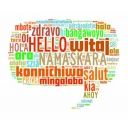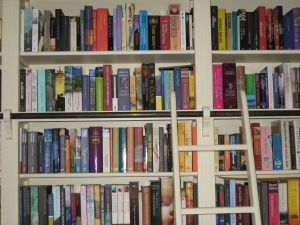Matura 2011 reading list, secondary school technical school
SATURDAY LEGISLATION SCHEDULE 2011, secondary school technical school. The Director of the Central Examination Commission informs that the following works will be obligatory for the matura examination in Polish language:
See the best essays for purchase.
Test your knowledge of the readings do tests from the readings
Each of you will find ready-made essays useful
Preparation for high school graduation is very difficult you may find it useful ready matriculation papers.
You may find it more enjoyable to assimilate the school readings – you do not have enough time to read? – you have a test or an exam with the content of the reading at school? You have to read? There is a solution for this – lektury szkolne w formie plików mp3 lektury szkolene w formie Adiobooków – Lektury Audiobooki you can also use Lektury ebooki
Baccalaureate 2010, 2011 on the basic level
1. POLISH LITERATURE
– Bogurodzica in the context of medieval poetry
– Jan Kochanowski – Fraszki, pieśni i treny / Urns (selection)
– Jan Andrzej Morsztyn – a selection of poems
– Daniel Naborowski – selection of poems
– Wacław Potocki – selection of poems
– Ignacy Krasicki – fables, satires (selection), Hymn to the Love of the Fatherland
– Adam Mickiewicz – Romantyczność
– Adam Mickiewicz Pan Tadeusz
– Adam Mickiewicz Dziady cz. III
– Juliusz Słowacki Kordian: act I, act II, act III sc. 5 i 6
– Zygmunt Krasiński Nie-Divine ComedyPart I, Part III (scene in the revolutionary camp), Part IV (scene in the aristocracy camp and the final scene)
– Adam Mickiewicz – a selection of poems
– Juliusz Słowacki – a selection of poems
– Cyprian Kamil Norwid – a selection of poems
– Bolesław Prus Lalka
– Eliza Orzeszkowa Above the Niemen – excerpts from volume III: conversation between Andrzejowa Korczyńska and her son, conversation between Benedykt Korczyński and his son
– Eliza Orzeszkowa Gloria victis
– Maria Konopnicka Mendel Gdańsk
– Boleslaw Prus Vest
– Henryk Sienkiewicz Potop
– Kazimierz Przerwa-Tetmajer – selection of poems
– Jan Kasprowicz – selection of poems
– Leopold Staff – selection of poems from various periods
– Stanisław Wyspiański The Wedding
– Władysław Stanisław Reymont Peasants (t. I)
– Stefan Żeromski Homeless People
– Stefan Żeromski Przedwiośnie
– Witold Gombrowicz Ferdydurke – chapter. II, III, VI, VII, VIII, IX, X, XII, XIV
– Zofia Nałkowska Borderline
– Tadeusz Borowski Farewell to Maria (Farewell to Maria, U nas, w Auschwitzu . Welcome to the gas chamber, The Battle of Grunwald)
– Gustaw Herling-Grudzinski Another world
– Bolesław Leśmian – a selection of poems
– Julian Tuwim – a selection of poems
– Maria Pawlikowska-Jasnorzewska – selection of poems
– Czeslaw Milosz – selection of poems
– Krzysztof Kamil Baczyński – a selection of poems
– Tadeusz Różewicz – selection of poems
– Zbigniew Herbert – a selection of poems
– Miron Białoszewski – selection of poems
– Wisława Szymborska – a selection of poems
– Stanisław Barańczak – selection of poems
– Jan Twardowski – a selection of poems
– Sławomir Mrożek Tango
– Hanna Krall On Time Before God
Note: knowledge of biblical, ancient and other contexts is also required.
2. GENERAL LITERATURE
– Sophocles Oedipus the King
– Horace – song selection
– William Shakespeare Macbeth
– Jan Wolfgang Goethe The sufferings of young Werther
– Fyodor Dostoyevsky Crime and Punishment
– Joseph Conrad Heart of Darkness
– Albert Camus Plague
At the extended level listed as at the basic level, in addition:
1. POLISH LITERATURE
– Jan Kochanowski Threnody
– Juliusz Słowacki Kordian
– Witold Gombrowicz Trans-Atlantyk
– Maria Kuncewiczowa Cudzoziemka
– Stanisław Ignacy Witkiewicz The Shoemakers
2. POPULAR LITERATURE
– Dante Divine Comedy – fragments Hell
– Jan Wolfgang Goethe Faust – Part I: fragments of the scene in the workshop (Faustus meditating on himself and his life, conversation with Mephistopheles)
– Franz Kafka Process
– Mikhail Bulgakov Master and Margaret
Note: extended level topics will require analysis and interpretation of works other than those listed above, but maintained in a poetics or convention familiar to students.
23 November 2010 13:19

When you are learning a foreign language, it is easier to remember those words, phrases and topics that are unusual, stand out for some reason, simply those that are interesting, catch our attention. Where to find them? The Internet is full of language blogs, portals dedicated to languages, their learning, where you can find a lot of language curiosities together with a discussion. The list includes the most common linguistic mistakes, amusing misunderstandings and slips of the tongue, as well as phrases that you will not learn in the course or from the textbook, originating from the spoken language, slang, dialect, borrowed, known from advertisements, newspapers. Social networking sites are a mine of curiosities, where various linguistic issues are presented, relating also to the culture of a language, its origins, roots that determine the particular usage, grammatical constructions.

Readings to be used in junior high schools in the school year 2011-2012 . There are compulsory and supplementary readings for classes I II and III, sample suggested readings are given. The following reading list is based on the Regulation of the Minister of National Education of 29 August 2008.

List (index) of obligatory and supplementary readings for grades I, II and III of junior high school. Also provided are examples of suggested readings. ROZPORZĄDZENIE MINISTRA EDUKACJI NARODOWEJ, z dnia 29 sierpnia 2008 r.

We present the list of obligatory readings in the school year 2012/2013 in secondary schools, technical secondary schools and high schools. These readings will be used for the 2013 Abitur exams. The list of readings is provided by the Central Examination Commission in relation to passing the Matura exam from Polish language on basic and extended level – Matura 2013 readings

